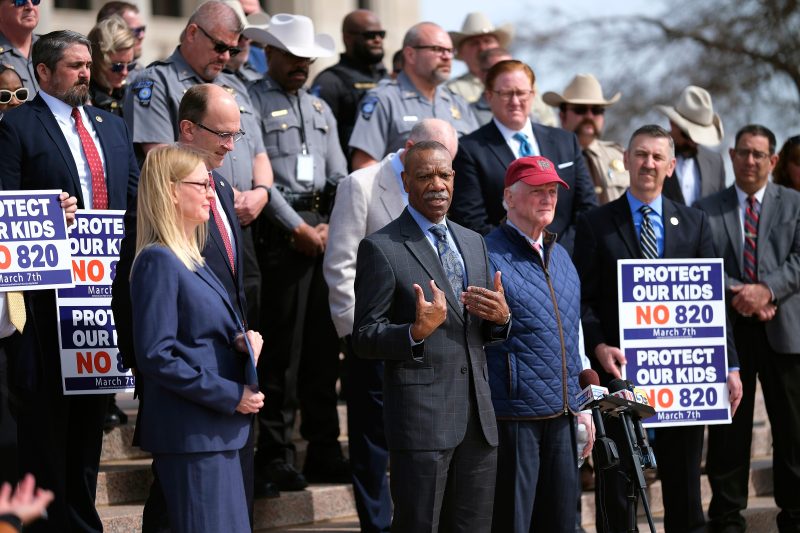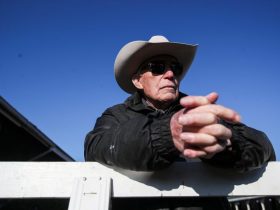Voters in Oklahoma on Tuesday rejected a measure to legalize the recreational use of marijuana, a defeat that marks a significant setback for the marijuana legalization movement.
The defeat came five years after state voters approved the drug for medical purposes. Oklahoma, one of the more conservative states in the country, would have been the 22nd state to allow recreational use of marijuana.
In November, voters in five states considered similar measures. Arkansas, North Dakota and South Dakota voted no, while Maryland and Missouri voted yes.
Oklahoma’s State Question 820 would have allowed adults over the age of 21 to buy marijuana from licensed sellers and established a tax on the proceeds. It also would have permitted some marijuana-related convictions to be expunged.
The measure faced opposition from Republican lawmakers, including U.S. Sen. James Lankford and Gov. Kevin Stitt. Lankford urged Oklahomans to vote no, saying the state had already seen marijuana use skyrocket, “hurting our communities and families.”
The proposal’s backers said it would generate hundreds of millions of dollars in tax revenue, help address racial disparities in marijuana-related convictions and further regulate the industry.
The rejection of the measure by Oklahoma voters points to a backlash against the state’s burgeoning marijuana business. Voters rebuffed the plan by a wide margin, with 62 percent against and 38 percent in favor.
Stitt celebrated the win Tuesday night.
“I believe this is the best thing to keep our kids safe and for our state as a whole,” he said after the defeat was projected. “I remain committed to protecting Oklahomans and my administration will continue to hold bad actors accountable and crack down on illegal marijuana operations.”
Organizers for Yes on 820, the campaign to regulate and tax recreational marijuana in Oklahoma, said in an email to The Washington Post that, despite the defeat, “legalization is not a question of ‘if;’ it’s a question of ‘when.’”
“Our mission from the very start has been about making a more prosperous, just and safer state,” said Michelle Tilley, campaign director for Yes on 820. “We are moms and dads who want more revenue in our schools, more resources for law enforcement, and more jobs and investment in communities across the state. Unfortunately, tonight we fell short.”
In 2018, Oklahoma legalized marijuana for medical use and permitted large-scale cultivation operations. There are nearly 2,900 medical dispensaries licensed in the state — more than California, which has 10 times Oklahoma’s population.
Oklahoma placed no limit on how many medical marijuana businesses could open and did not require specific health conditions for patients to be eligible.
Such lax rules made the state “the most liberal medical marijuana market in the country,” according to a 2021 article in MJBizDaily, a cannabis business trade publication. Low license fees and cheap land added to the allure. The state earned a new moniker: “Tokelahoma.”
Some observers say supply has far outstripped demand, leaving legitimate businesses struggling while large quantities of marijuana are diverted to the illegal market.
Oklahoma has become the leading source of black-market marijuana for a number of states along the Eastern Seaboard, Mark Woodward, a spokesman for the Oklahoma Bureau of Narcotics, told television station KOCO in December. He also said about 2,000 farms in the state — approximately a quarter of the total — are under investigation for fraud or diverting supply to the illicit trade.
Last year, the state implemented a two-year moratorium on new marijuana business licenses.
Kyle Rempfer contributed to this report.








